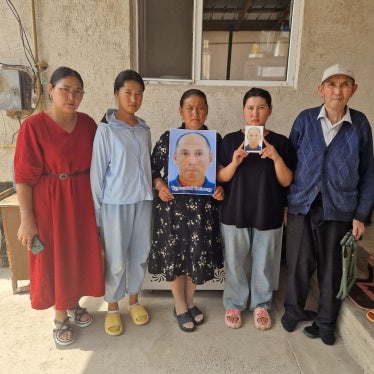Thank you, Mr. President. The High Commissioner’s much-anticipated investigative report on Sri Lanka will play a vital role in informing international consideration of the human rights situation in Sri Lanka, minimum benchmarks required to ensure a credible justice and accountability process, and the follow-up required. Three elements are crucial to a credible response from this Council:
First, the resolution will need to set out concrete benchmarks for an effective justice and accountability mechanism, including a majority of international judges in an independent system, an independent international prosecutor, and measures to ensure that the applicable law for the mechanism will include customary international humanitarian law, notably command responsibility.
Second, the resolution will need to engage with the High Commissioner’s recommendations regarding national reforms needed, including repeal of the Prevention of Terrorism Act, ensuring detainees are not subject to torture or ill-treatment, and measures to address enforced disappearances.
Third, it is crucial that the Council remain seized of the matter, and make provision for regular reporting and updates until such time as the concerns that led to the creation of the OHCHR investigation have been addressed and have delivered genuine justice.
The families of Sri Lanka’s dead and disappeared have waited years and in some cases decades for justice. This Council must not fail them.
In Burundi, state repression and restrictions on freedom of expression and freedom of assembly increased sharply in advance of and since the 2015 elections. Human Rights Watch documented numerous instances in which Burundian intelligence officials and police arbitrarily arrested, ill-treated and in some cases tortured suspected opponents and other detainees. However, many of the abuses outside the capital remain unreported due to the government’s closure of Burundi’s main private radio stations and the risks faced by human rights defenders and journalists. There has also been an alarming increase in targeted killings of opposition party members, as well as ruling party members, in recent weeks. In this context, we therefore urge your Office to start to report publicly and regularly on the human rights situation in Burundi, based on the information collected by your Country Office.
Human Rights Watch shares the concerns expressed by the High Commissioner on China’s new Law on National Security, as well as other proposed legislation that cast criticism of the government as state security concerns. Between July and September, the government arbitrarily detained more than 250 lawyers and activists. About 20 remain in custody, most of them in secret locations without access to lawyers or family members and many beyond the legal limits allowed, and contrary to President Xi’s vow to promote “the rule of law.” Finally, today marks the second anniversary of the arrest of activist Cao Shunli at the Beijing International Airport as she was intending to board her flight to Geneva just weeks before China’s UPR. We urge the High Commissioner to call for an investigation into the legal basis for her detention and of her subsequent death on 14 March 2014.







